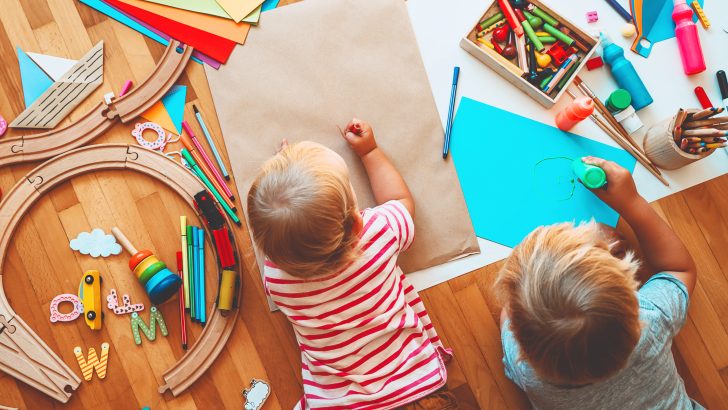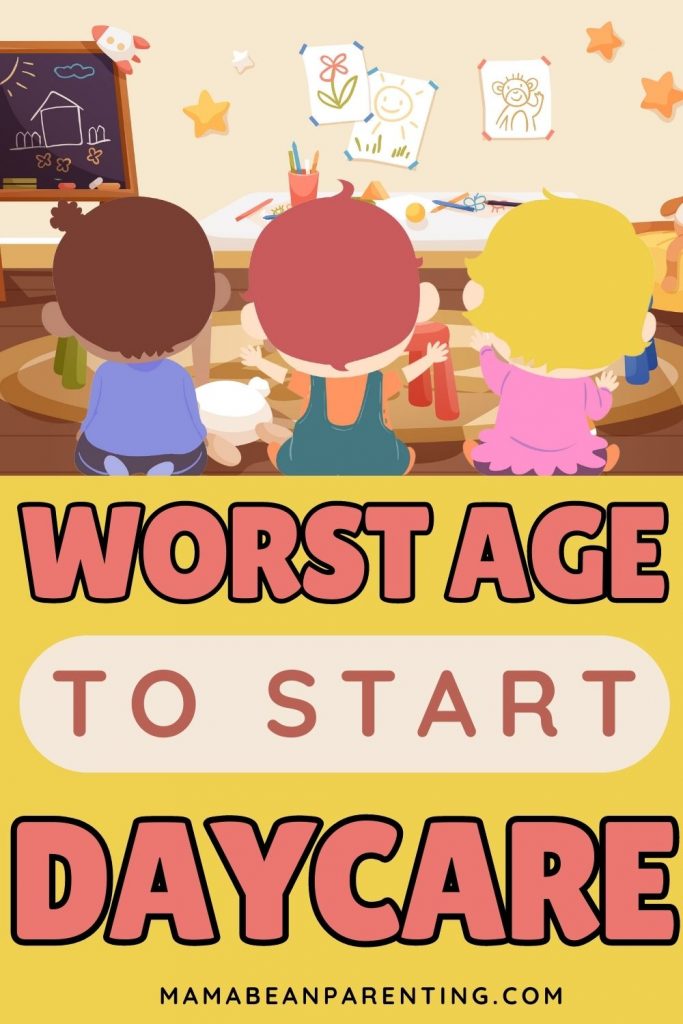Child daycare is a popular solution for parents that work a full-time job.
But what’s the best and worst age to start daycare?
Figuring it out can be tricky, and that’s why we’re here to help. The timing has to be right. Plus, it’s not the same for every baby. That’s what makes the answer more complicated.
How can you tell if your little one is ready for daycare?
Starting daycare either too soon or too late can negatively affect the baby’s development. It’s hard to say when exactly is the worst age to start daycare. That’s because it varies on a baby-to-baby basis.
However, we aim to help you make an informed decision.
Some parents start daycare as early as three months.
Others – when their baby is several years old. Who made the correct decision? How can you choose an ideal time for daycare?
Well, the best age to start daycare depends on a few factors. There’s much to dissect, so let’s start with the basics.
Parents that work a full-time job often experience daycare guilt.
That’s why it’s crucial to go over the benefits first.
Benefits of Daycare for Your Child
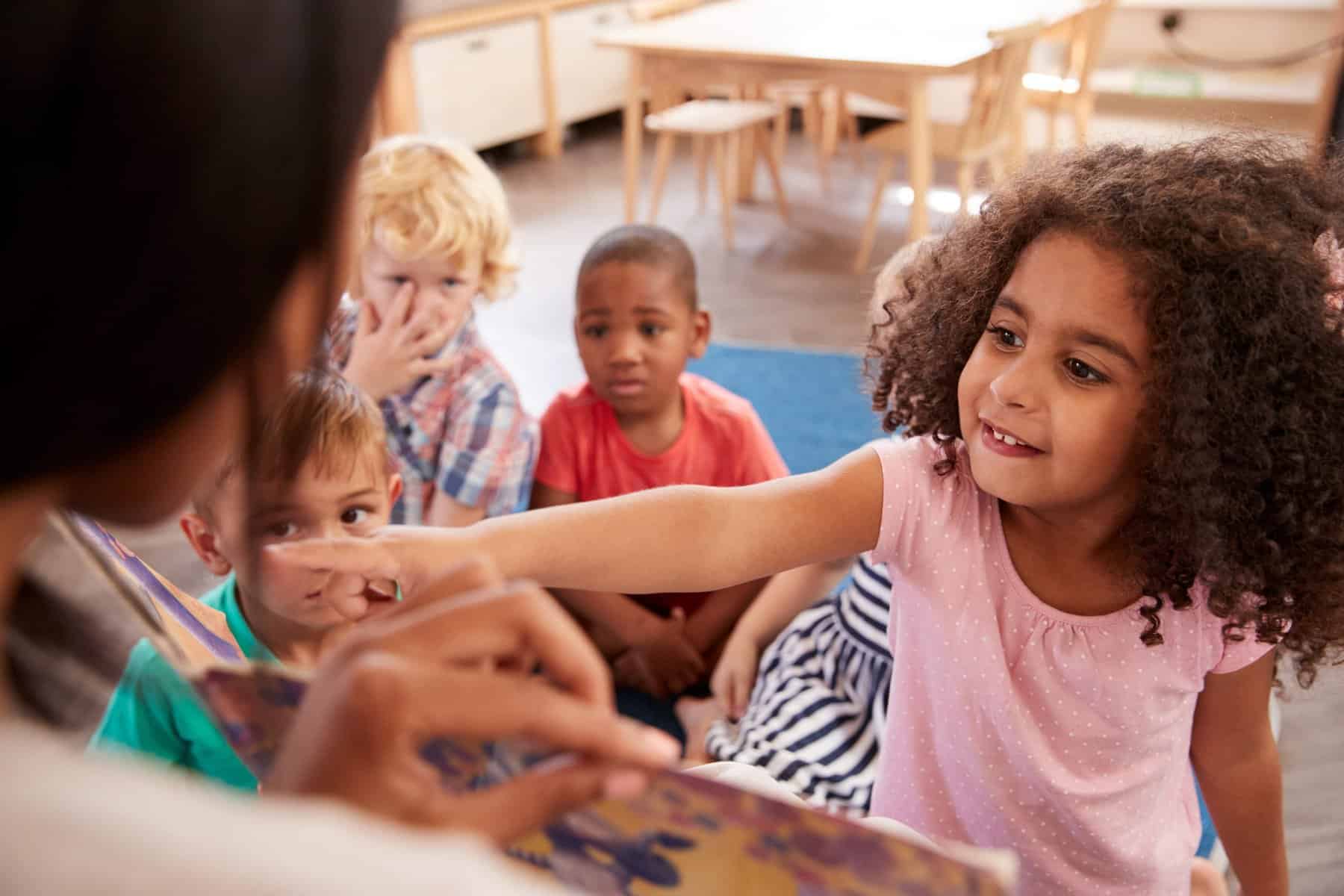
Enrolling your child in a daycare center has many positive benefits. There are certain social opportunities that you just can’t provide at home.
So, a safe and educative environment can do wonders for your baby’s development. You may even want to look into the Montessori method.
Because of these benefits, you’re providing a solid foundation for their future. If you’re feeling guilty or anxious about it – don’t worry.
We’ll tackle how to deal with daycare guilt, too.
For now, let’s just explore how daycare creates opportunities for growth and success.
1 • Social Development
Every child needs to develop social skills.
In that sense, a child can only learn by interacting with other children.
Do you feel worried about placing your baby in an unknown environment? Keep in mind that in daycare, all children are constantly supervised.
Not only supervised, mind you – but supervised by professionals.
Your child is constantly learning by being surrounded by other children. They are learning to communicate, understand, and express their thoughts and emotions.
Those are the two key points of social development. Daycare fosters listening skills and develops empathy, as well. Together, children work fluidly to communicate and solve problems.
These skills are essential and they need to be nurtured at an appropriate age. As always, a good start ensures optimal development.
In daycare, children engage in various social activities, like taking turns. This develops patience and helps kids make friends.
At the end of the day, that’s the most important part of child care. You allow your child to form friendships and feel a sense of belonging.
2 • Cognitive Development
Daycare cultivates learning and provides a knowledge-rich environment.
Children engage in a range of activities that enhance crucial life skills. From memory games to reading books and solving puzzles – you name it.
The activities are designed specifically to capture and hold attention. So, they’re not only beneficial for your child but fun and exciting, too.
You can safely do most of these activities at home. You can even get the whole family involved.
One commonly overlooked benefit of daycare is the fact that it develops routines and habits. Children that stick to a routine tend to be more disciplined and well-behaved.
That’s a crucial skill for children to have, and it’s best to cultivate it while they’re young.
When children learn to follow routines in daycare, your life as a parent gets much easier.
The best daycare centers provide a variety of activities – from science to art.
So, there’s an activity to suit every child’s interests.
Enrolling your little one in daycare is certain to boost their cognitive development. It helps them not only discover their potential – but actually reach it.
3 • Emotional Development
Children experience emotions more intensely than adults. That’s because they’re unable to regulate their emotions properly.
In daycare, children are provided a safe environment to explore their emotional side. This leads to a firmer grasp and understanding of emotions.
Therefore, this kind of development is invaluable for many reasons. As a parent, you have to understand why kids react emotionally.
At this young age, everything is new, scary and exciting. As children navigate the world, they need to be provided with safe opportunities to develop.
To be more specific, they need an environment that supports emotional growth. That’s why daycare is crucial, because it allows kids to identify their emotions.
In daycare, your child learns to express their feelings verbally and nonverbally.
This is important, especially when interacting with other kids.
Daycare provides a multitude of activities that focus on emotional development.
From expressing emotions by way of art to engaging in role-playing games, children are provided numerous opportunities to develop their understanding of different emotions.
These activities ultimately create a stronger sense of self-confidence and self-esteem. That’s why it’s important for parents and teachers to offer positive reinforcement.
Every child needs to feel free to explore and express their emotions.
Yes, even negative emotions like fear, anger, or sadness. After all, there can be no emotional health without emotional resistance.
How to Deal With Daycare Guilt
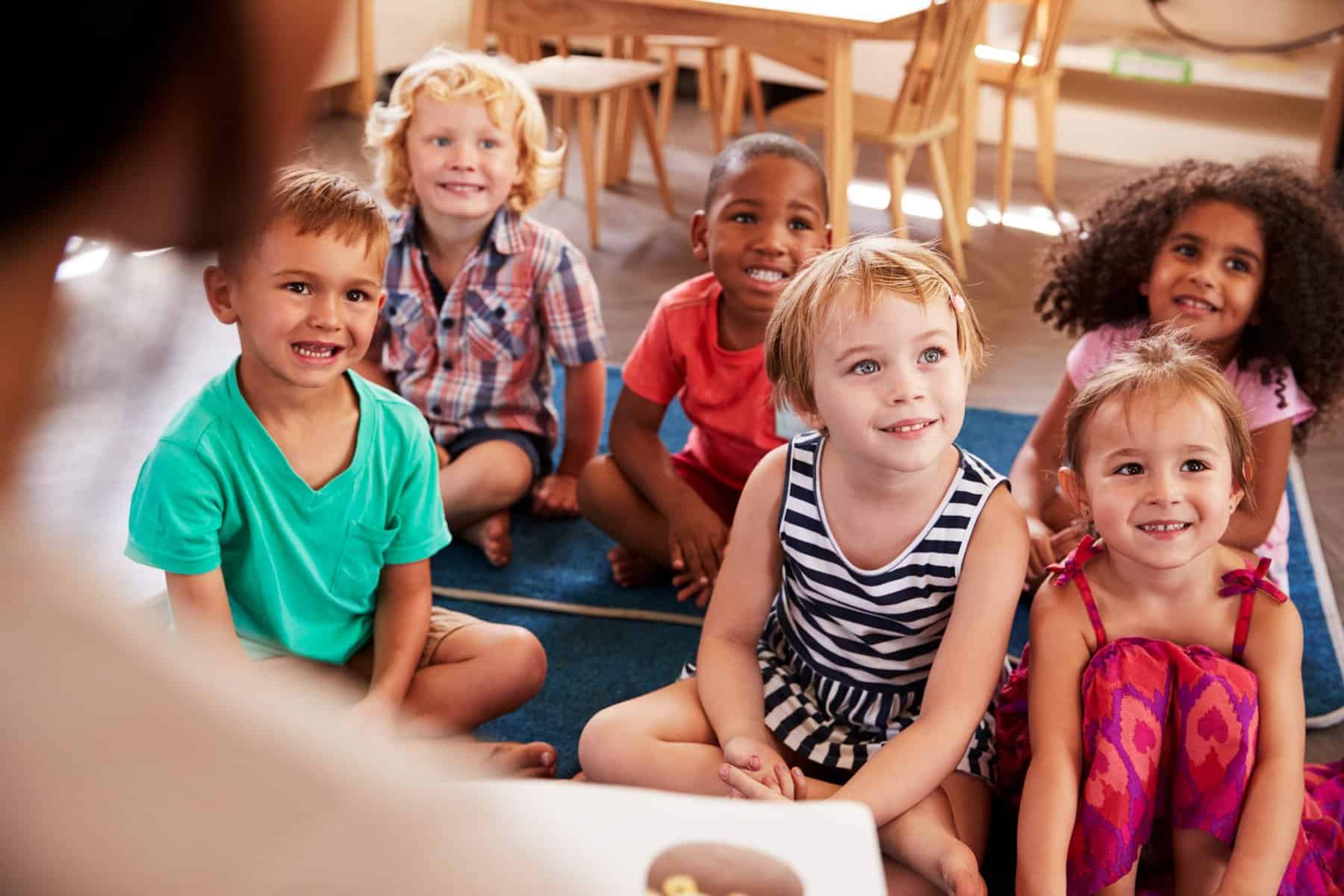
Many parents feel guilty about enrolling their kids in daycare. You’re not alone. It’s normal to feel this way. You’re concerned about your child. You want the best for them.
As a result, you may feel as if you’re missing out on important milestones. Some parents even begin to doubt themselves.
That’s why it’s essential to understand that daycare is a good solution.
In fact, for many working families, it is a necessary one.
But it’s still a viable option even if you simply don’t want to give up your career. Daycare doesn’t mean that you’re a terrible parent. That said, daycare guilt is a real problem that many parents face.
So, here are a few tips on how to deal with it.
Start by acknowledging your feelings. What does that actually mean? That means giving yourself the freedom to really feel your feelings. Do so without imposing self-judgment.
And don’t try to change your feelings, either. Only by accepting your emotional response can you take the next step.
What’s the next step, then?
Focus on the benefits.
Daycare provides various opportunities to help children thrive and affects your child’s social, cognitive, and emotional development.
At an early age, developing these skills and aspects is crucial. That’s why sending a child to daycare is beneficial for everyone.
Talk to your child’s caregivers if you still have doubts about childcare.
Teachers can give you a breakdown of what to expect during this time. They can also comfort you and provide peace of mind by assuring you that your child is in good hands.
However, staying involved in your child’s life is just as important.
Make sure that the time you spend together is spent well. Keep it productive and establish a routine. That way, you’re not going to feel like you’re missing out or that you’re not contributing.
Whenever you’re picking up your kid from daycare, have a chat with the caregivers. Ask for a breakdown of what kind of activities they did today.
This can inspire you to do the same activities at home. Besides, knowing what milestones your baby is reaching is always important.
Do all of this right, and you will get rid of daycare guilt quickly.
However, don’t forget to take care of yourself, too. As an employed parent, you’re actually working two jobs. In other words, the work doesn’t stop when you come home.
So, make time for yourself. Don’t let stress get the better of you.
In the end, it’s all about trusting the decision that you make.
Just try to remember that daycare can be a positive experience for the entire family.
What’s the Worst Age to Start Daycare?

Unfortunately, there is no end-all and be-all answer.
The worst age to start daycare varies on a child-to-child basis. However, there are a few things that you have to consider as a responsible parent.
The first year of a baby’s life is generally considered too young for daycare – especially the first 6 months. In most cases, it’s advised to wait at least until your child is 1 year old.
Starting daycare too early can expose your baby to various illnesses. That’s because babies have weaker immune systems. Therefore, many parents choose to wait – but how long should the wait be?
The worst age to start daycare doesn’t have to be too early.
In fact, waiting too long can negatively affect your child’s development. Children need to socialize, and it’s up to parents to provide opportunities.
Children’s development is delayed if they are not socialized at an appropriate age.
To be exact, they struggle to develop social and emotional skills later on.
Another thing to consider is transitioning from a home to a daycare setting.
Waiting until your child is older can make it difficult to transition to a different learning environment, which may potentially lead to your child experiencing separation anxiety.
The worst age to start daycare is either too soon or too late.
So, how do you know when it’s time? In reality, you don’t actually know for certain. You can’t. What you can do, however, is make an informed decision based on a few factors.
First of all, consider your child’s individual needs. Consider the various ways by which daycare helps them develop. Consider your child’s age and consult with other parents and your pediatrician.
It also helps if you familiarize yourself with the stages of child development. Trust your parental instincts, but don’t decide until you’re well-informed.
Risks of Starting Daycare Too Early
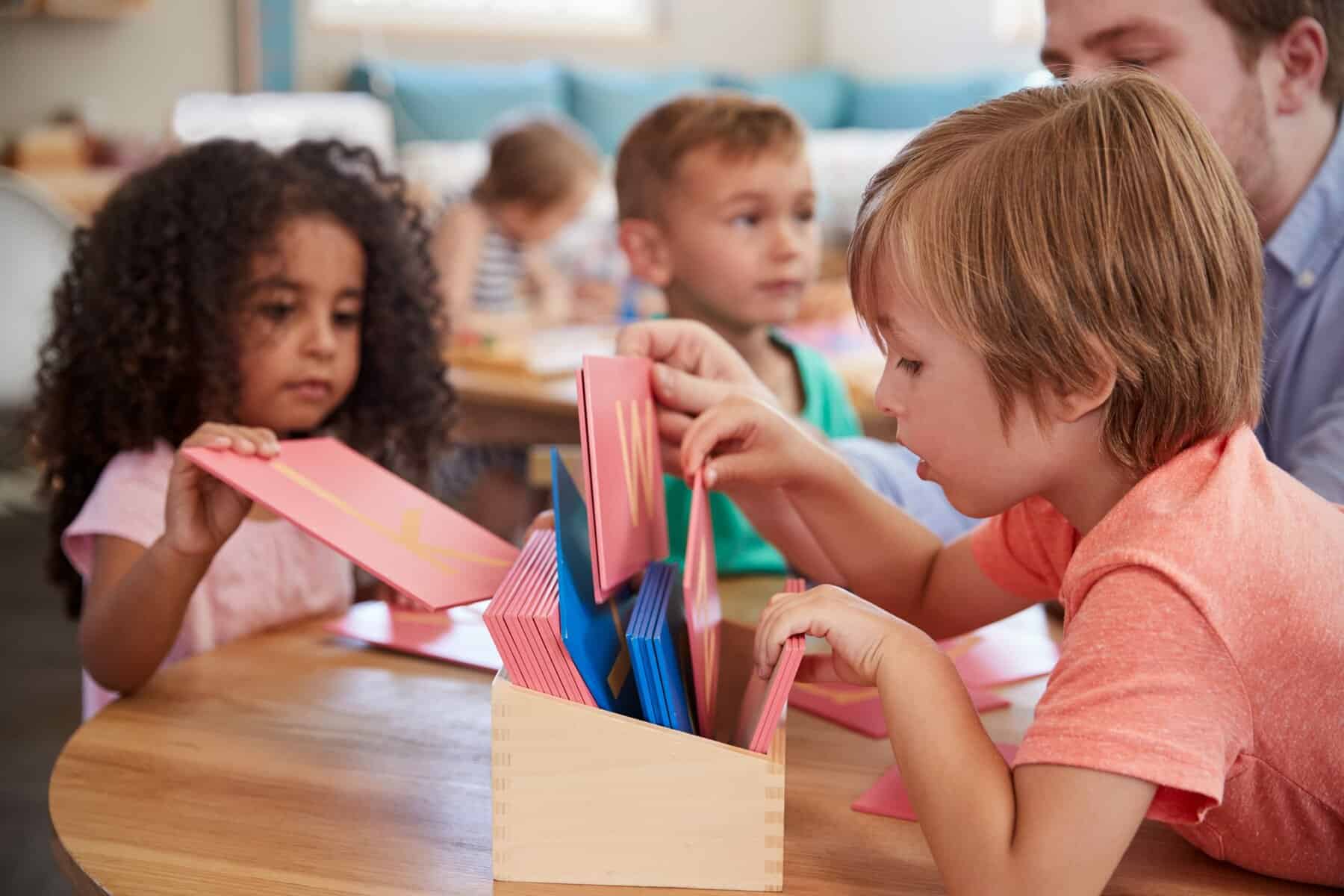
It’s hard to say how starting daycare too early will affect your baby. It’s different for every child, but it’s still crucial to understand the potential risks.
Babies under six months of age have an underdeveloped immune system. That means that they’re more vulnerable to illnesses. For that reason, many parents choose to delay starting daycare.
Surrounded by other children, your child could get sick more often. Waiting until their immune system develops is considered a much safer option.
Before you can transition into daycare, your child has to get used to you not being around. Otherwise, you may experience a case of separation anxiety right off the bat.
Practice this at home. Try it with other family members, too. Leave your child alone in a safe environment to see how they react. You can provide toys as comfort and distractions.
With every session, increase the amount of time you spend apart.
If your child reacts well, they likely won’t experience separation anxiety. Just remember to address this potential issue before starting daycare.
Another thing to pay attention to is your parent-child bond. Starting daycare too early can lead to attachment issues. You must ensure you and your baby have a strong, well-developed bond.
It matters more now since your little one won’t be at home all the time. Daycare can work wonderfully for young children, but you need to be observant.
You need to monitor your child in order to ensure that everything goes smoothly. Another thing worth considering is how your baby reacts to new stimuli.
Children too young for daycare are more likely to react negatively to this transition. As a result, they experience higher stress levels.
That’s why it’s important to choose a high-quality daycare service. A loud, disruptive environment can make it difficult for children to adapt. They need to feel comfortable.
The only way to make it work is to transition patiently and gradually. We all love our babies, but not all babies react in the same way. Starting daycare too young can cause behavioral issues.
If this happens, it’s important to respond and resolve the issue immediately.
Keep these things in mind and stay involved in your child’s development.
Risks of Starting Daycare Too Late
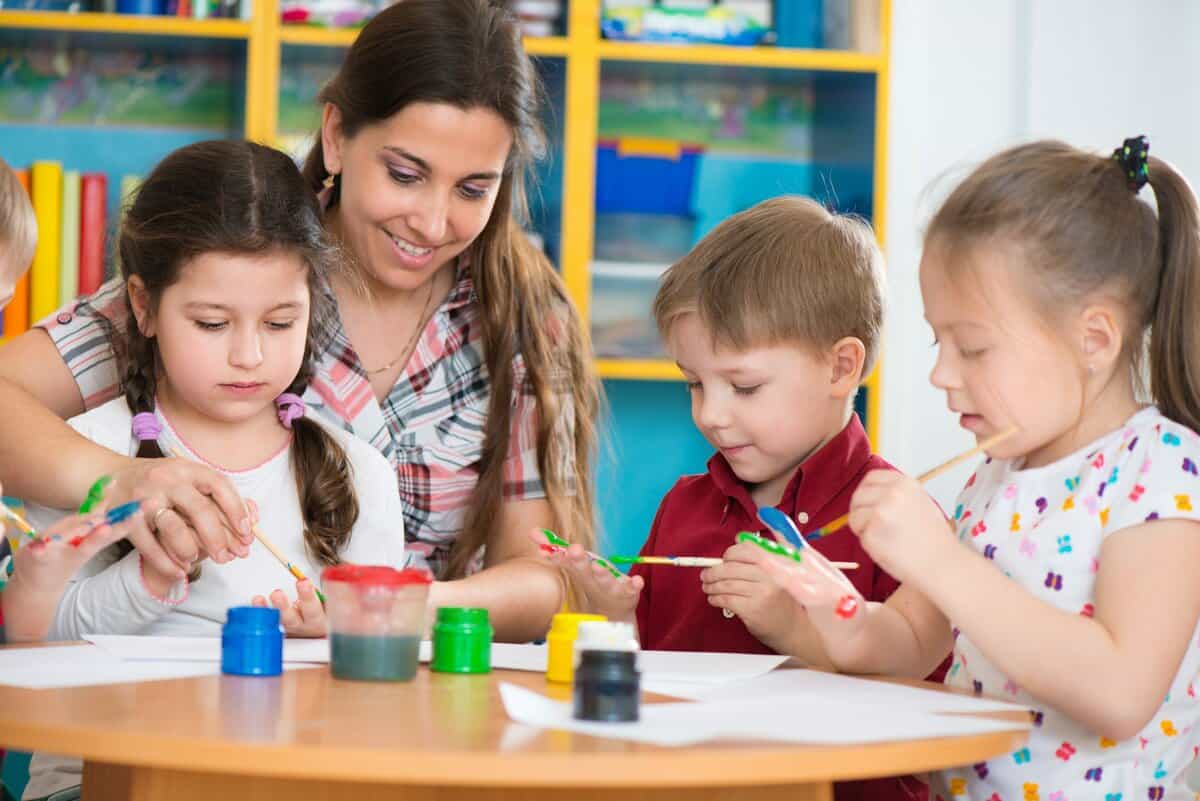
Entering a daycare program too late presents its own set of challenges. Here’s what you can expect if your child is late to the party.
First of all, they may have difficulty catching up with their peers. Their social skills can be delayed or underdeveloped if they didn’t have appropriate opportunities to socialize.
However, facing these problems doesn’t mean that they’re impossible to solve. If your child finds it difficult to adapt to social situations, you need to be patient. Trust in the process and let the teachers do their magic.
An older child is going to need more time, especially with transitioning. Daycare can seem scary if your little one isn’t used to spending time away from you.
It inevitably gets more complicated to transition the longer you wait.
Another thing to consider is that older children may miss out on key opportunities. Due to their age, they may not get the same experiences that younger children had.
After all, most of the work done in daycares is done in groups.
Most of the things that are new to your child are things that other children have already been exposed to, and that can make it tricky for your little one to navigate confidently.
It may even lead to higher stress levels and anxiety.
Rest assured, however, that these issues can be ironed out with time and effort.
Just remember to be patient since your child may very well be overwhelmed.
The worst age to start daycare is either too soon or too late, but in both cases, it’s possible for a child to adapt successfully and to thrive still and develop in a daycare environment.
What’s the Best Age to Start Daycare?

So, what’s the best age to start daycare? There’s simply no such thing. It’s impossible to pinpoint the exact time to make the transition.
As previously stated, this varies significantly on a case-to-case basis. Nevertheless, a few pointers can help you make the correct decision.
So, how can you tell what’s the best age to start daycare for your baby?
There’s no perfect time, but it’s usually best to start sooner rather than later. That said, you at least want to wait until your baby is 6 months old due to safety reasons.
During that time, your baby develops a stronger immune system and bonds with you. After that, you can start considering daycare for your little bag of joy.
Many experts claim that the best age to start daycare is when a child turns 12 months old.
Why?
Because waiting any longer can lead to certain developmental delays.
There’s only so much you can teach and provide at home. Childcare extends beyond the confines of your home. That’s where daycare comes in. Toddlers need to start daycare on time in order to get the most out of the experience.
Otherwise, they may not get the right social opportunities to develop.
But is your child ready for daycare?
Consider their age. Children are ready for daycare if they’re 12 months old. The best age to start daycare is ultimately going to depend on your child.
It’s a decision that you have to make based on your own assessments.
You want to consider your child’s developmental stages and the availability of high-quality daycare services in your area before you ultimately reach a final decision.
Remember – when in doubt, don’t hesitate to ask.
You can call the daycare center and even bring your child for an assessment.
They can give you a professional opinion and shed light on how they provide child care.
In Conclusion

All things considered, there’s no such thing as the best age to start daycare.
However, there is such a thing as the best age to start daycare for your child. And it’s your job to figure it out.
That said, we advise waiting at least until your baby is 6 months old and no sooner than that. On the other hand, waiting too long can lead to developmental delays and issues.
Keep in mind the many benefits that daycare provides. This environment supports your baby’s social, cognitive and emotional needs.
Daycare helps your little one grow by providing unique opportunities.
Yes, you will still be involved in your child’s growth before and after daycare – but you don’t exactly have a group of young kids in your home for your child to develop socially.
That’s precisely why parents opt to enroll their children in daycare, to begin with.
No matter when your child starts, a safe, educational environment yields positive results.
If you work full-time, don’t let guilt prevent you from ensuring these benefits for your child. Remember – your little one gets all the care and support they need to thrive.

Mother of three and a primary school teacher. I’ve always loved being around children and helping them, so I chose my path as a teacher. It is sometimes hectic with three children, but I am 100 percent into it and wouldn’t change it for anything in the world.

